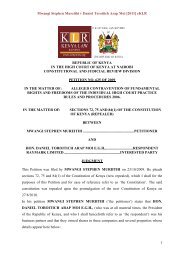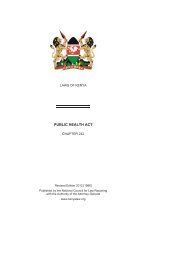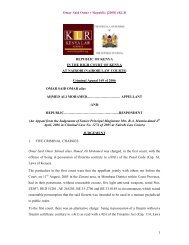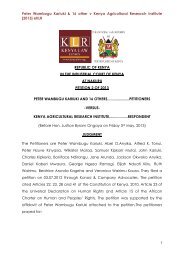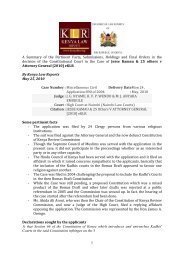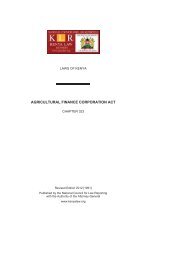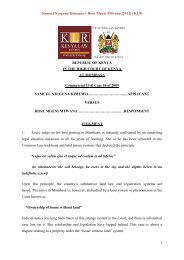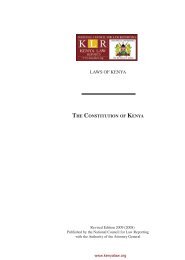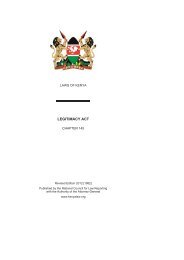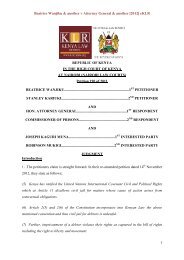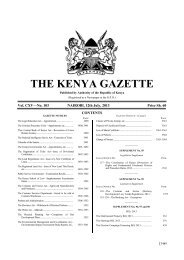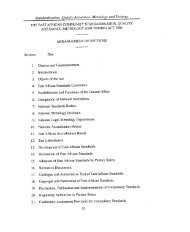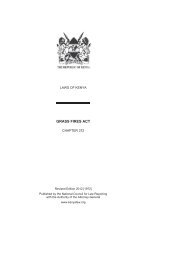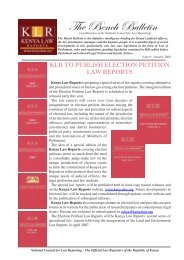Download Case - Kenya Law Reports
Download Case - Kenya Law Reports
Download Case - Kenya Law Reports
You also want an ePaper? Increase the reach of your titles
YUMPU automatically turns print PDFs into web optimized ePapers that Google loves.
Securicor Courier (K.) Ltd v Benson David Onyango & another [2008]eKLR<br />
course of their employment provided that this indemnity shall<br />
apply only to loss or damage represented by or consisting of the<br />
cost of replacing such consignment and (in the case of Data) of<br />
hiring of any additional computer time necessitated thereby with<br />
an overall maximum sum of <strong>Kenya</strong> Shillings One Thousand<br />
(Kshs.1,000/=) in respect of any one claim and subject further to<br />
a maximum sum of <strong>Kenya</strong> Shillings Twenty thousand<br />
(Kshs.20,000/=) in respect of all such loss or damage occurring<br />
in any consecutive period of 12 months. This indemnity shall<br />
not, nor shall any liability of the company its servants or agents<br />
to the client, on any ground or for any cause whatever or under<br />
any circumstances extend to any consequential loss or to any loss<br />
or damage other than the cost of replacement ……”.<br />
www.kenyalaw.org<br />
Clause 3 (d) of the Conditions of Service further provides that if the company carries<br />
out more than one service for a client on any one day the total liability for the company<br />
during that day shall not exceed Shs.10,000/=.<br />
The 1 st respondent agrees that he signed the first page of the Consignment Sheet as<br />
shown.<br />
In this case, the appellant had conceded liability and is not therefore relying on any<br />
exemption clause in the contract to exclude its liability for breach of contract or negligence.<br />
However, the appellant is relying on clause 2, an exemption clause, which limits its liability<br />
to the sums specified in that clause. It is not therefore necessary to examine in detail the law<br />
on the efficacy of various forms of exemption clauses which exclude liability altogether. The<br />
history of the English courts’ approach to the contractual clauses excluding or limiting<br />
liability was comprehensively traced by Lord Denning M.R. in George Mitchell<br />
(Chesterhall) Ltd. v. Finney Lock Seeds Ltd. [1983] 1 All E.R. 108 from page 111 – 117.<br />
The history shows that for some years in the development of the common law, the<br />
English court introduced the doctrine of “fundamental breach” of a contract to obviate<br />
injustice which may be caused by an exemption clause in certain cases. Under that principle,<br />
6



